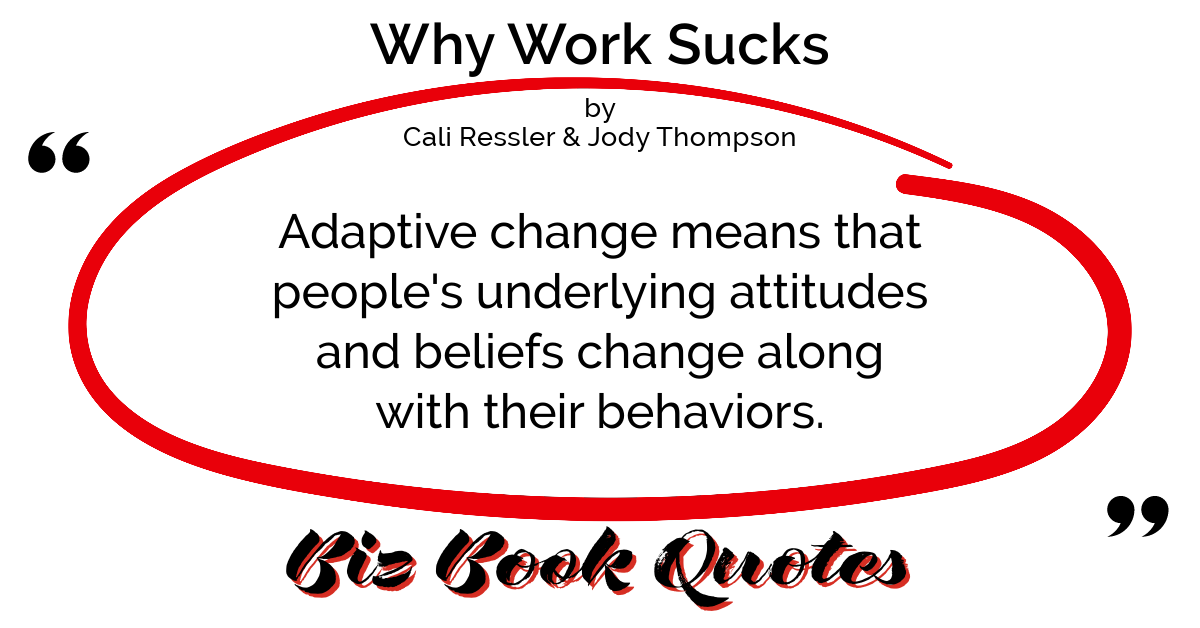 |
Adaptive change means that people’s underlying attitudes and beliefs change along with their behaviors.
|
079 |
 |
Adaptive change isn’t easy. While you’re going through this kind of change the future state is being discovered. You are moving into an unknown, even if it’s an intended unknown.
|
080 |
 |
When adaptive change happen some level of distress is inevitable. Real change usually involves loss.
|
080 |
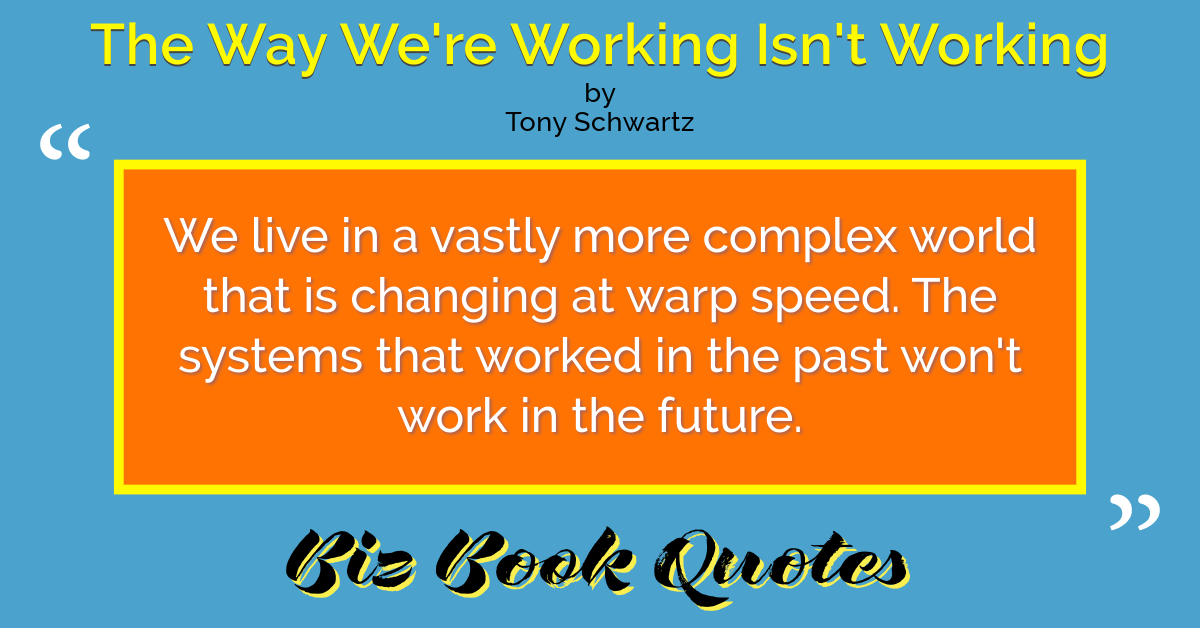 |
We live in a vastly more complex world that is changing at warp speed. The systems that worked in the past won’t work in the future.
|
021 |
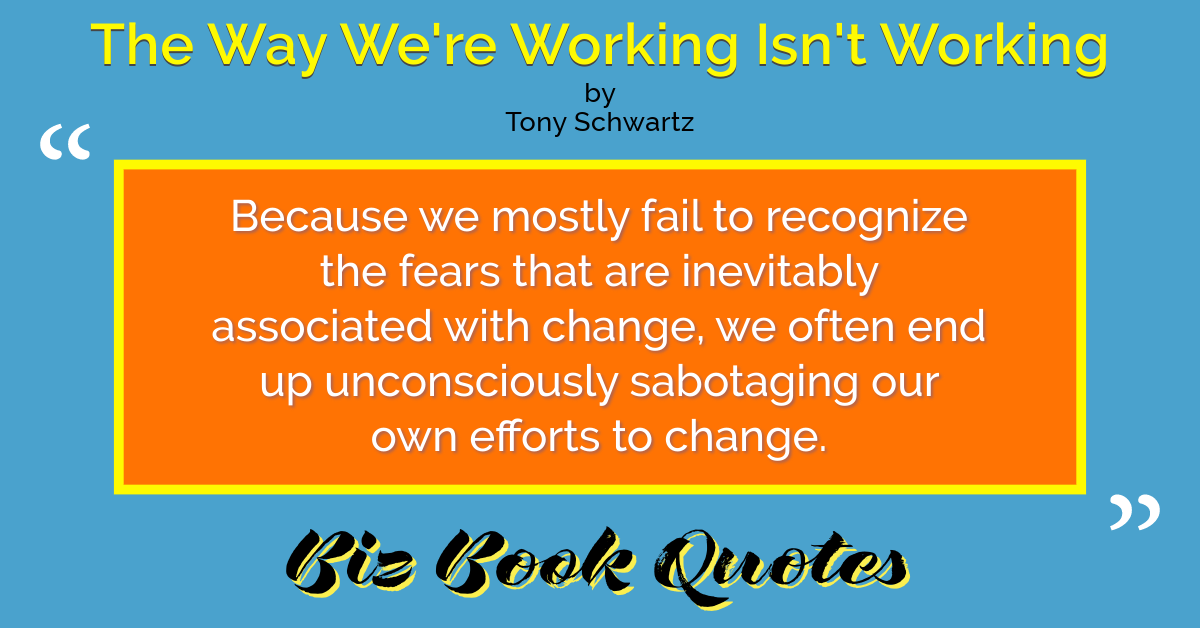 |
Because we mostly fail to recognize the fears that are inevitably associated with change, we often end up unconsciously sabotaging our own efforts to change.
|
043 |
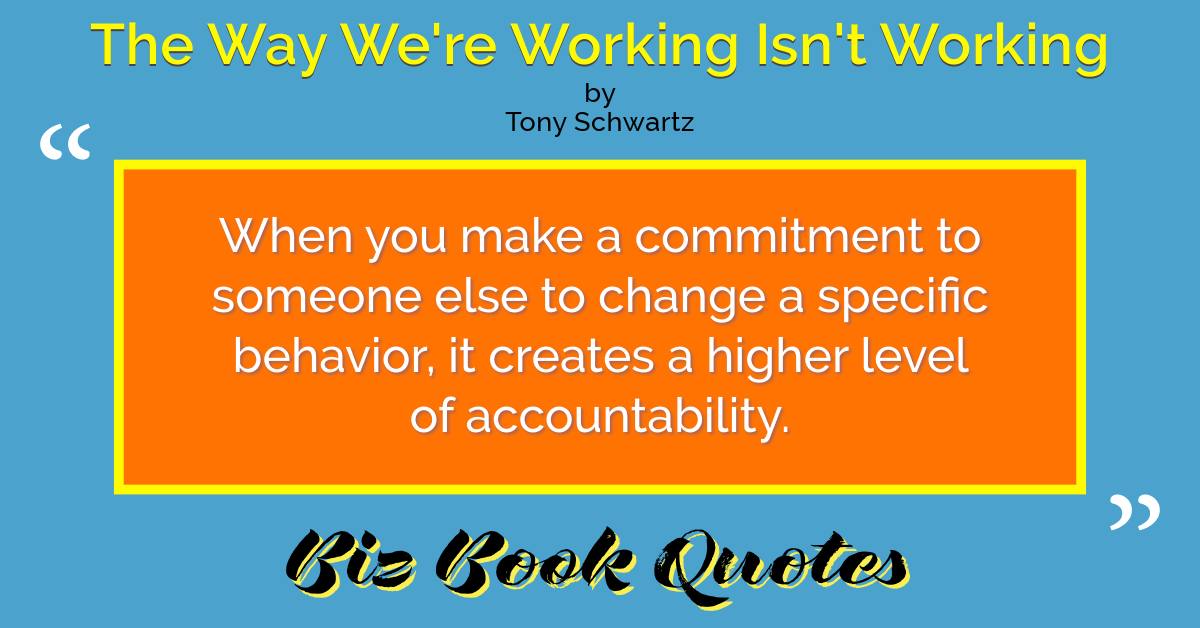 |
When you make a commitment to someone else to change a specific behavior, it creates a higher level of accountability.
|
043 |
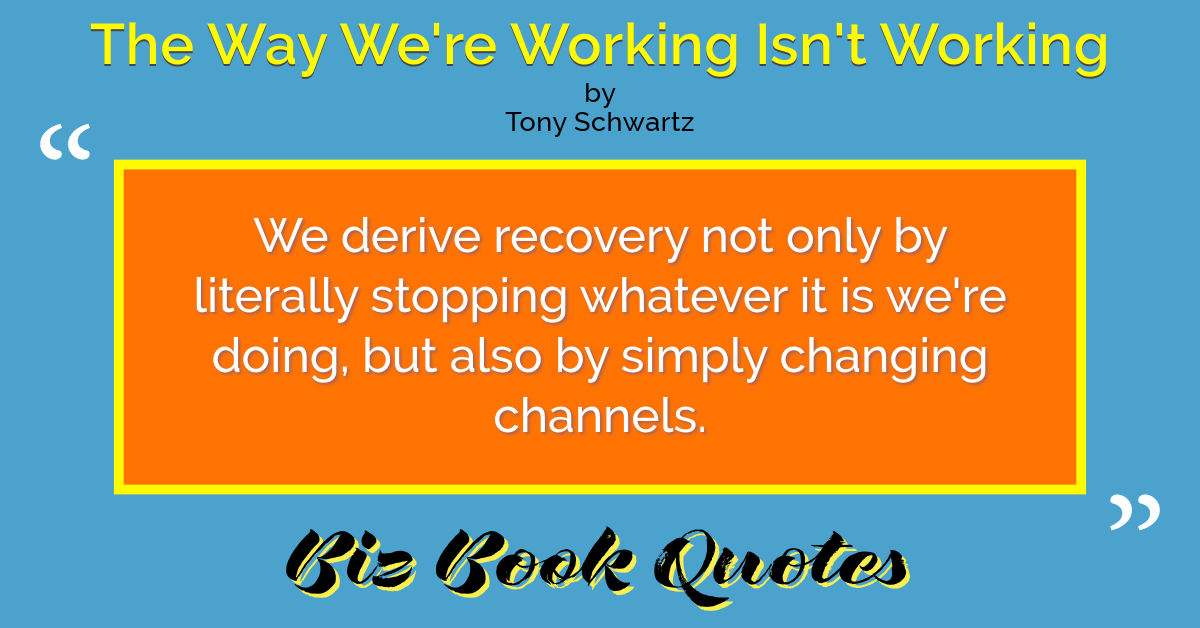 |
We derive recovery not only by literally stopping whatever it is we’re doing, but also by simply changing channels.
|
069 |
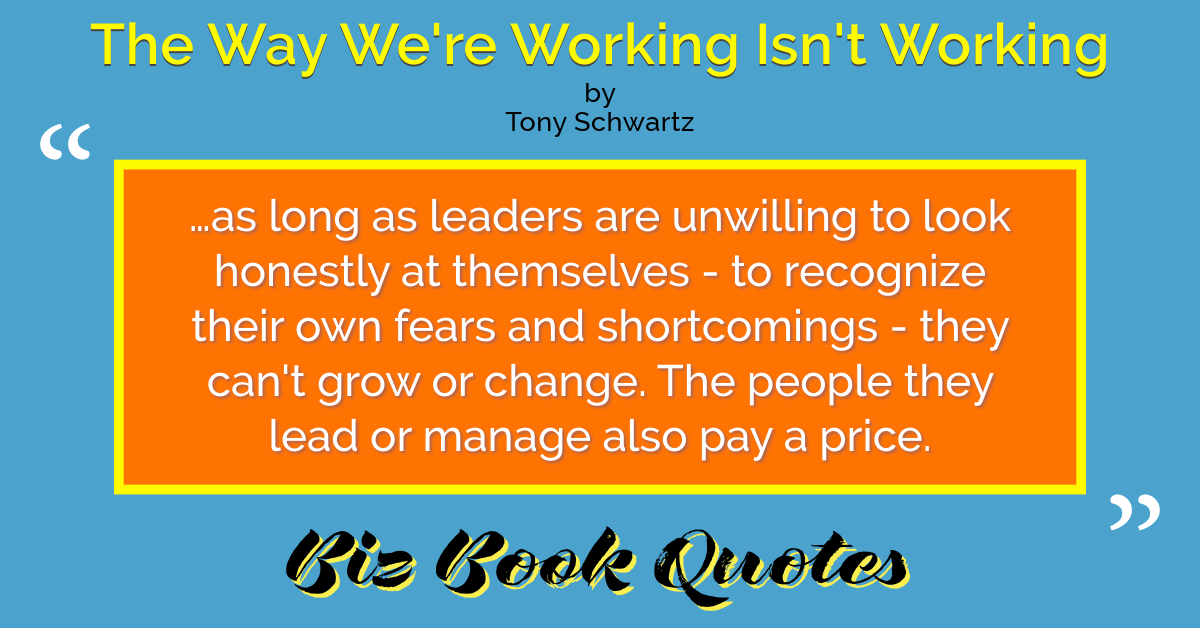 |
…as long as leaders are unwilling to look honestly at themselves – to recognize their own fears and shortcomings – they can’t grow or change. The people they lead or manage also pay a price.
|
142 |
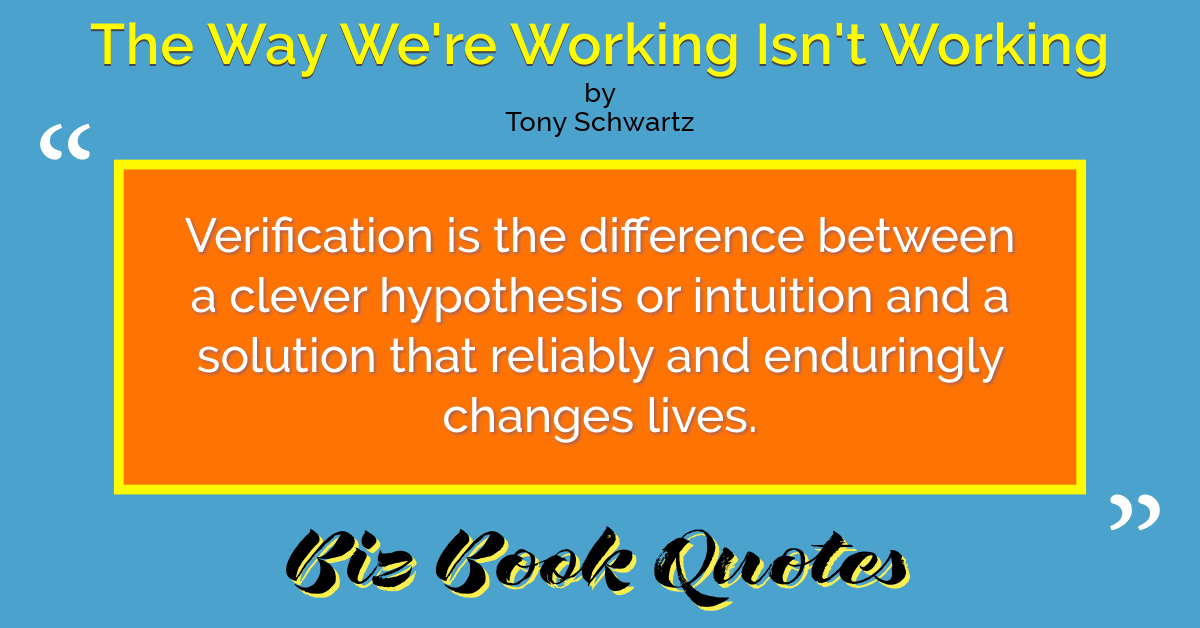 |
Verification is the difference between a clever hypothesis or intuition and a solution that reliably and enduringly changes lives.
|
219 |
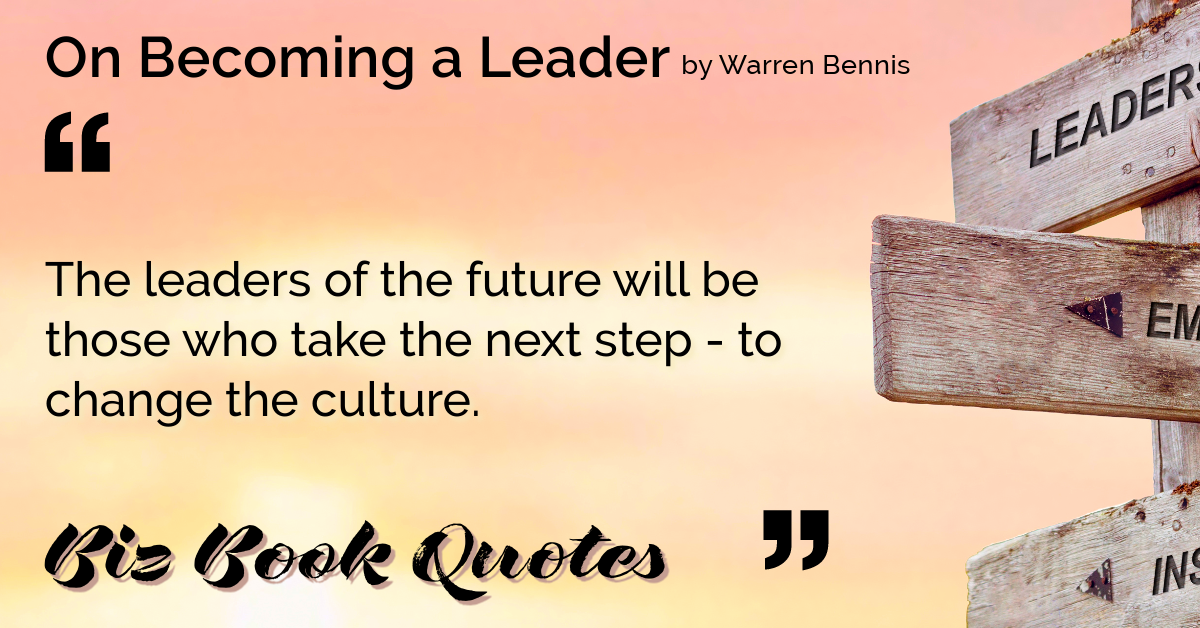 |
The leaders of the future will be those who take the next step – to change the culture.
|
186 |